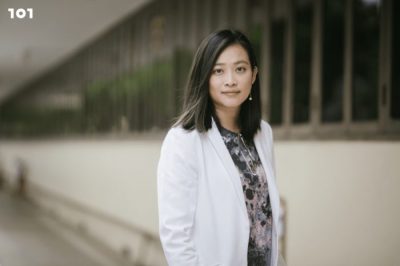This article is from EngageMedia, a non-profit media, technology, and culture organization. This is republished as part of a content-sharing agreement with Global Voices.
The ongoing protests for democracy in Thailand—and attempts to quell dissent— mean that Thai citizens continue to face threats to their human and digital rights. But such threats are not limited to those participating in the protests. The internet is already being used as a tool to violate the basic human rights of people, which extend to the online space. The right to privacy is violated by surveillance by authorities or trolling by state or non-state actors. Freedom of speech, especially the right to express dissent, is threatened by censorship or draconian laws.
In light of these threats, and as part of EngageMedia’s broader #HumanOnTheLine campaign that aims to educate and empower Thai netizens about their digital rights and how recent events in the country are leading to digital rights violations, EngageMedia asked six Thai women from diverse backgrounds about dealing with digital rights violations and, more importantly, how to make the Thai internet a better, freer, more secure place.
Among the goals of the #HumanOnTheLine campaign is making Thai netizens more aware and informed of how available and emerging technologies can impact these rights, for better or for worse, in order to create more space for Thai netizens to discuss these problems and advocate for solutions.
The interviews were first published in the Thai news outlet The 101 World. English translations of selected quotes from the six interviewees are republished below.
According to Thitirat Thipsamritkul, lecturer at the Faculty of Law, Thammasat University:
Digital is the new context for human life. We live under new conditions of life that are created by digital tools. We could not resist that our life also goes on in the digital world and our rights and freedom should be respected in the digital space as well. Therefore, it’s the state’s obligation to guarantee the rights of citizens in this digital space.
Wasinee Pabuprapap, a reporter from workpointTODAY, a local online media producing both daily news and in-depth analysis, said:
I do aim to deliver information to different groups in order to make them have some common facts. If we prohibit a group from media space, the only fact that they could seek for is the fact under an agenda.
In her response, women's and human rights defender Chonticha Jangrew, who is also co-founder of Democratic Restoration Group, a civil society group promoting democratic reforms, said:
In order to create a safe space, the government must listen to people’s voices. As a result, we will have sustainable ways to solve problems. We should change our mindset from thinking that different opinions are harmful for national security, to being aware that different opinions could be the way out of a crisis. If the government oppresses the expression both offline and online, both anonymous and publicly, there is always the risk.
Anchana Heemina, women's and human rights defender and founder of Duay Jai Group, which helps those imprisoned for crimes related to the insurgency, as well as their families in the southern part of Thailand including Yala, Narathiwat, Pattani, and four districts of Songkla province where some groups are asserting the right to self-determination, said:
In the Deep South of Thailand, the government must learn to use technology as a tool to create more positive connections with the people on the ground, not using technology to oppress people.
Southeast Asian Writers Award recipient Veeraporn Nitiprapa said:
When technology creates rapid change, the question is how people in different generations adjust to the change. We must learn from our experience, accept the risks and flaws, and learn and grow with it.
Supinya Klangnarong: co-founder of CoFact.org, a collaborative fact-checking platform in Thailand, reminded readers to be aware that we are not using digital tools and online platforms for free since we exchange our information and privacy. She added:
In the digital world, there is no free lunch. There are many things beyond our control, such as algorithms, deep fake, and echo chambers. The question is how to have literacy over the tools that we are using.














